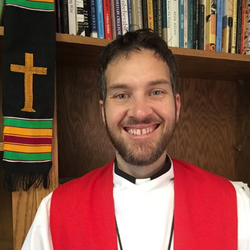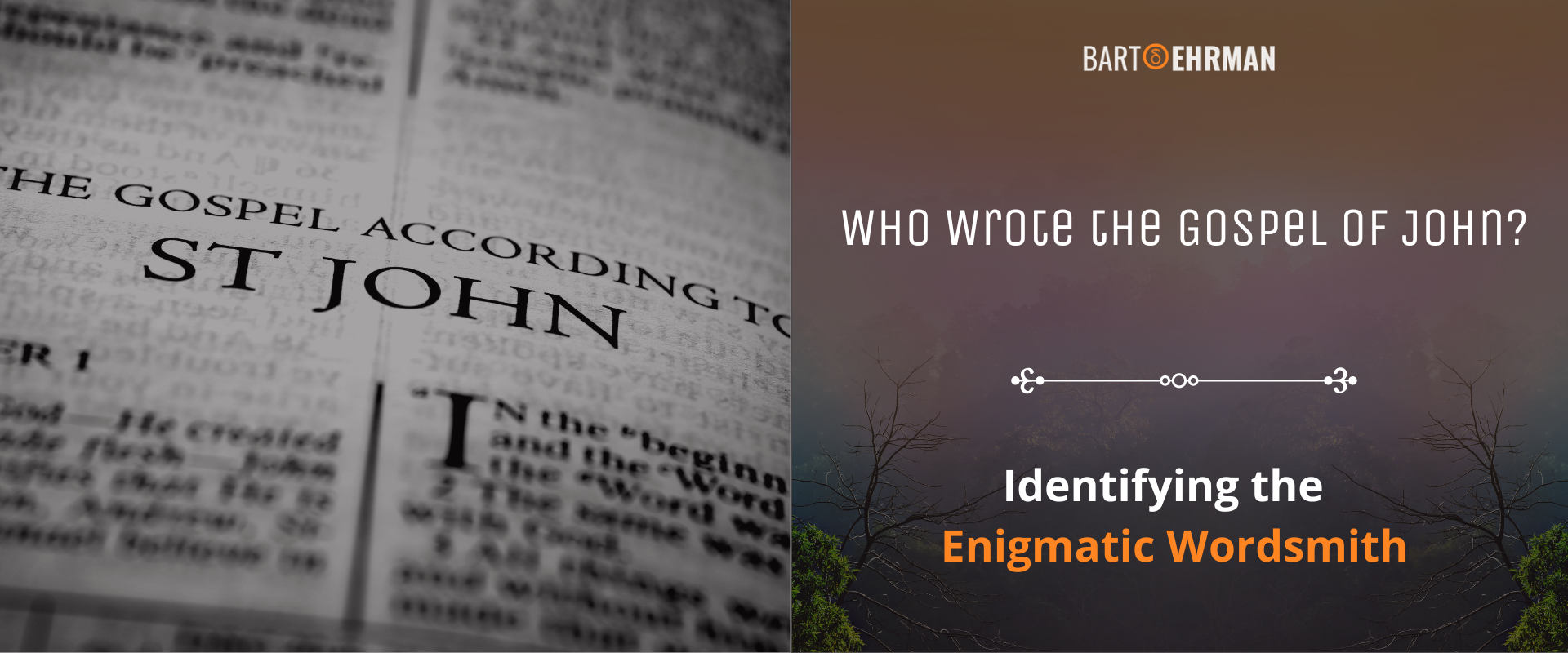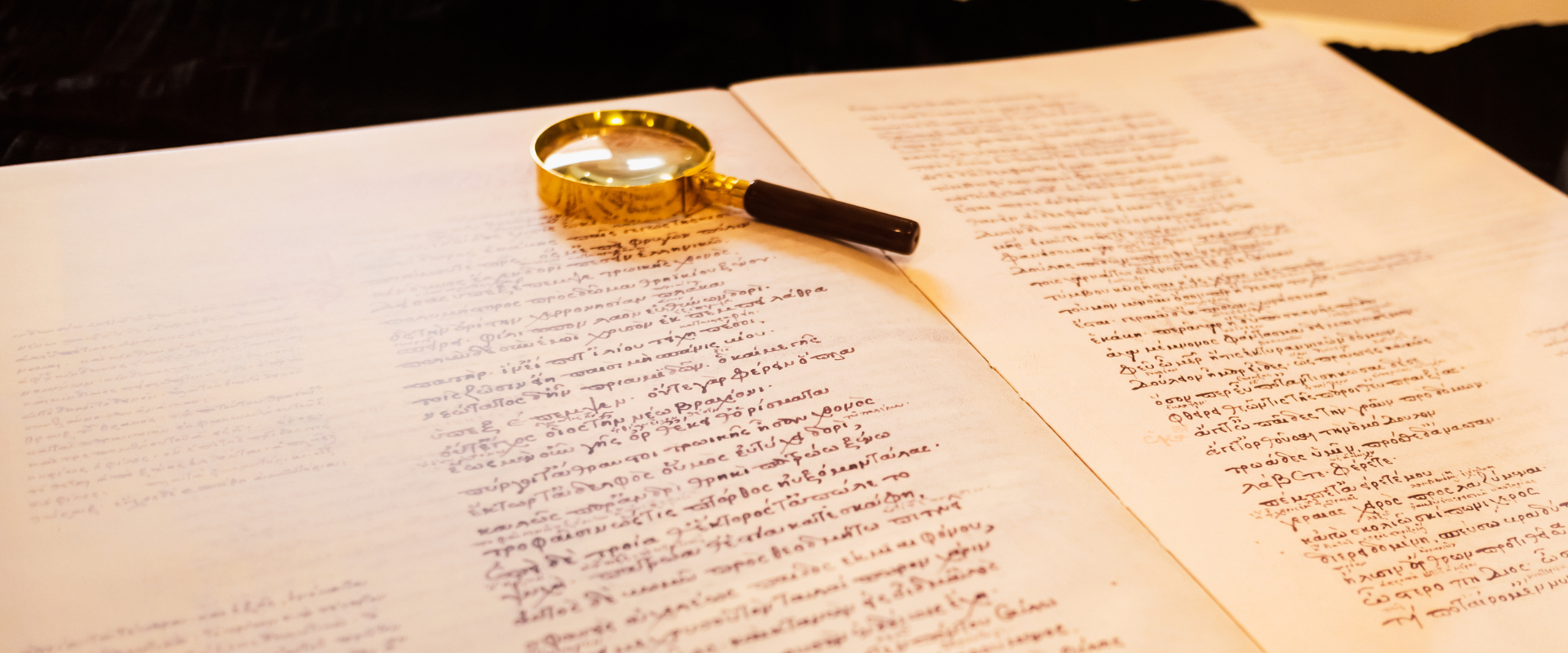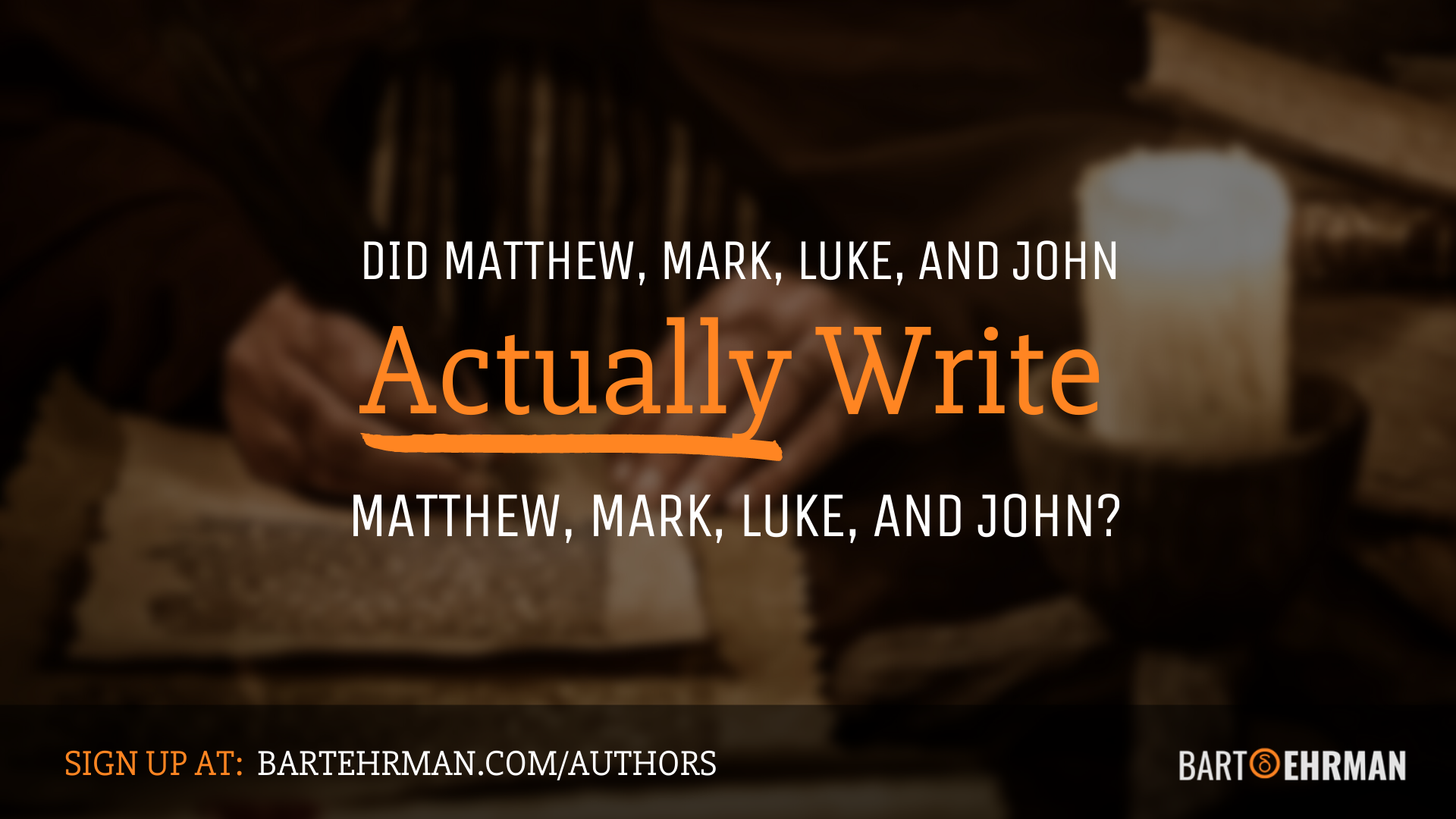Unmasking Who Wrote the gospel of John

Written by Keith Long, MDiv
Author | Pastor | BE Contributor
Verified! See our editorial guidelines
Verified! See our guidelines
Date written: July 11th, 2023
Disclaimer: The views and opinions expressed in this article belong to the author and do not necessarily match my own. - Dr. Bart D. Ehrman
The question of who wrote the Gospel of John is almost as baffling as how it was included in the New Testament canon in the first place.
To make a long story short, the early church was convinced the author of this Gospel was none other than John, the son of Zebedee and one of the three disciples in Jesus’s inner circle of trust. Without this label, it is doubtful that the Gospel of John would share Biblical history alongside Matthew, Mark, and Luke.
Authorship of ancient scripture was a matter of supreme importance. This led early leaders to decide that the only books included in what would later be known as The Bible were required to have the apostolic stamp of approval (written by an apostle.)
The most significant caveat to John’s identity is that the Gospel of John does not assert authorship by an individual bearing his name. It remains entirely anonymous.

Bart Ehrman's Scholarly Exploration
The consensus among scholars may differ, but the prevailing belief is that John’s name serves as a mere placeholder.
While my perspective may be biased, I have complete faith in Dr. Bart Ehrman’s comprehensive coverage of this topic on Gospel authorship through his diverse range of books, blogs, podcasts, and online courses. There are numerous layers to uncover when examining who authored the Gospels, and Bart has done an exceptional job at dissecting them all with precision.
The aim here is not only to provide readers with an overview of the ongoing debate surrounding Gospel authorship but also to delve into what kind of individual could have penned such profound words. So prepare for a powerful exploration into one of Christianity’s most intriguing mysteries!
When it comes to establishing and celebrating Biblical authority, it would be so much more convenient if the authors of the Gospels were, in fact, eyewitnesses to the miraculous deeds of Jesus.
….so the question is, who wrote the gospel of John? Was he such an eyewitness?
As I continue my studies and teachings of the scriptures, I increasingly feel at ease with letting go of the notion that the Gospel of John was authored by the same individual who accompanied Jesus in the initial years of the first century.
Anonymous authorship can be a confusing concept to grapple with. However, assuming this John is the John from Jesus’s heyday is nothing more than wishful thinking, not to mention a bit irresponsible. We should trust the consensus among New Testament scholars who assert that none of these writers were eyewitnesses to Jesus’s life, death, and resurrection.
WHO WROTE THE BOOK OF JOHN AND WHEN WAS IT WRITTEN?
Who were these Gospel writers, and why were they writing about Jesus? Authors of the Gospels like “John” were likely established Greek authors invited to entertain audiences with stories about the incredible deeds of Jesus passed on to them (For a mind-bending tangent, check out Dennis MacDonald’s Mythologizing Jesus: From Jewish Teach to Epic Hero).
The Gospel of John was written during the turn of the first century and had the advantage of several decades for legends to embellish the story of Jesus. Unfortunately, the surviving content falls far short of achieving historical accuracy about Jesus, which the author may have intended to convey.
However, I believe that the anonymous Greek writer known as “John” did not intend to talk about Jesus but rather embody his teachings. John’s approach was to speak in the voice of Jesus himself. While some may question the veracity of these extensive speeches, they remain unverifiable precisely because they are so distinctive within this Gospel text.
The Mystery of the Gospel of John. Was he a Jewish Mystic?
Cover to cover, the words of this Gospel differ significantly in comparison with the other three Gospels. John has Jesus conveying profound spiritual lessons about life and God, and they strike me as words I might hear from a preacher.
According to author John Shelby Spong, that might be because John was a Jewish mystic, and his words were intended to inspire a mystical understanding of Jesus rather than a historical account of his life.
The moment I delve into the pages of John’s Gospel, my mind is captivated by its powerful and sermon-like language. The vivid imagery used to convey Jesus’ acts serves as a theological education in and of itself. To assert this writer was none other than Jesus’ close confidant and disciple would be an audacious claim bordering on absurdity.

Key Questions That Must be Answered, when pondering Who Wrote the Gospel of John
I urge those who hold the belief that “the” John, author of the gospel bearing his name, was a disciple of Jesus to consider the following key questions:
1) When was the Gospel of John written?
2) In what language was it written?
3) Would someone, who was likely illiterate, be able to produce such well-written content?
Tapping the original disciple John as the author ignores the near consensus of late first-century dating, as well as the fact that these words were penned in the Greek language.
To write the Gospel of John, Jesus’s disciple would have needed to not only learn but master a new language in his very, very old age. Possible? Anything is possible with God, right? That said, given Jesus’s disciple was likely illiterate, it remains highly unlikely that he achieved fluency in Greek as a centenarian.
Using this logic, it’s difficult to imagine Jesus’s disciples writing any books of the New Testament.
The Gospel of John: A Charismatic Testimony
Repeatedly, academics and theologians have established that the probability the author of John was the disciple of Zebedee is extremely low. Furthermore, whether “John” was even his actual name is doubtful. Despite this uncertainty, can we extract any valuable knowledge from this text?
Taken at face value, are there any clues that tell us who the author was versus who he wasn’t? My takeaway is that “John’s” Gospel is one long, often repetitive, but highly charismatic sermon.
My books and sermons are usually on the short side, but John? His work is the equivalent of a lengthy Baptist preacher stirring up the crowd on a Sunday morning. Maybe that’s just me, but this Gospel comes across not as a book to be read but as a brow-beating persuasive testimony to be heard and felt.
It feels like this Gospel wasn’t intended to be studied but to be consumed. Whomever this author was, from my point of view, he succeeded in building a very compelling case in favor of Jesus as the Christ.
Conclusion: Who Wrote the Gospel of John?
Who wrote John in the bible? I have no idea what his name was, what his educational background consisted of, or whether he preferred red or white wine. That said, something deep down is stirred every time I open the New Testament to the fourth Gospel.
Perhaps he was a gifted storyteller, a pastor, or a beloved professor? He was certainly a well-rounded and passionate preacher.
The true identities of the authors behind The New Testament remain a mystery. Unfortunately, these shrouded Greek figures failed to provide any “About the Author” notes or background information that could aid our historical investigations.
I believe John’s Gospel was written to place Jesus’s hands in the metaphorical sidewalk cement outside the Chinese theater of Hollywood. The author wanted to be part of a legacy that has, far and away, become something more special than he could have imagined.
The Gospel of John cleverly and boldly put in print a written record of an oral tradition about Jesus the Christ that somehow lives on in perpetuity, eternally pointing seekers and believers alike to Jesus who, in his words, is “the way, the truth, and the life.” (John 14:6)
FREE COURSE!
WHY I AM NOT A CHRISTIAN
Raw, honest, and enlightening. Bart's story of why he deconverted from the Christian faith.
Over 6,000 enrolled!

